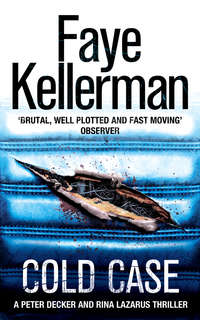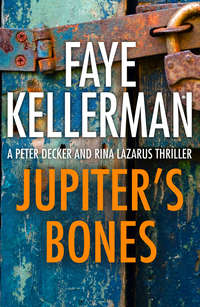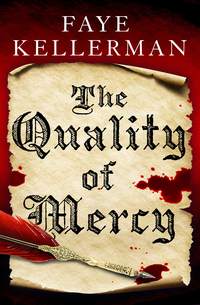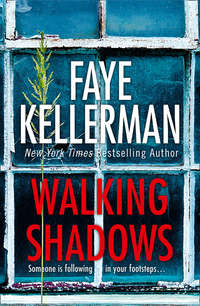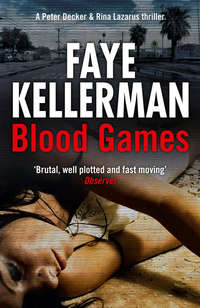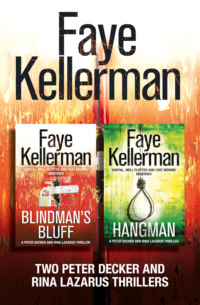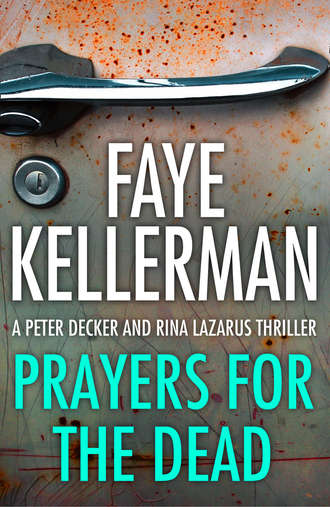
Полная версия
Prayers for the Dead
“Of course, we type-match, Detective. We do the best we can. But often it isn’t enough. There’s a sad shortage of hearts and lots of people with heart disease. We have to make do. That being the case, we have to work around the immune system. We have to undermine it. Hence, the class of drugs known as immunosuppressants. Cortisone for example.”
“You give heart transplant patients cortisone?”
“No, but surgeons give them related immunosuppressants. Like prednisone. The most commonly used drugs are Imuran and Cyclosporin-A. With severely compromised renal patients, surgeons often use the more experimental class of immunosuppressants—Orthoclone or OKT3—and the other Ks like FK506. Sorry to bore you with details, but it will help you understand the importance of Curedon.”
The room fell quiet. Marge wrote as fast as she could.
“Curedon has a completely different chemical structure from the other immunosuppressants. The way it binds and interacts with T-cells through the production of interleukin 2 … Curedon seems to subdue the immune system without suppressing it. What that means is, we see far less unwarranted side effects. This is very, very important. Because transplant patients are on immunosuppressants for life.”
“Forever?” Oliver asked.
“Ever and ever,” Decameron said. “We put them on as minimal a dose as possible. But even so, there are side effects.”
Marge asked, “Such as?”
Decameron ticked off his fingers. “Pulmonary edema, ulcers from mucosal sluffing, chills, nausea, fever, dyspnea.” He shook his head. “It’s a long road for these patients, and our goal, as members of the healing arts, is to make them as comfortable as possible. Curedon is as close to any miracle drug as I’ve ever seen in my twenty years as a physician and researcher. Azor had worked years on it. I learned more about 2.2 resolutions and X-ray crystallography than I’d ever wanted to.”
Decameron fell quiet.
“But I did learn.” His eyes became moist. “I did learn. And it was an honor for me to be part of something so cutting edge.”
“What’s going to happen with Curedon now that Dr. Sparks is gone?” Oliver asked.
“Not much probably. The initial trials of Curedon have been quite successful in general.” Decameron’s smile was tight. “Although we have had a few ups and downs lately. That’s why I was so pleased when I saw Azor’s data coming through his fax. I just couldn’t wait for him to come out of surgery. But it was wrong. An invasion of his privacy.”
Marge tapped her pencil against her pad. “What do you mean ‘ups and downs’?”
Decameron looked pained. “A small rise in the mortality rate—”
“That’s death rate in common folk language,” Marge interrupted.
Decameron smiled. “Yes. Death rate.”
“With Curedon.”
“Yes, with Curedon.” Decameron looked at Marge pointedly. “The patients aren’t dying from the drug, they’re dying from heart and renal failure. The sharp rise is puzzling, but kinks aren’t uncommon. Ah, the glamorous life of a research physician. Probably data error. Or a transcription error … or, alas, it could actually be a problem with the drug.”
“And if it is a problem with the drug?” Oliver asked.
“We’ll work it out. Curedon’s been a marvel. Too good to be true. Some bumps are inevitable. But mark my words. The drug will come on the market within the next five years.”
He paused.
“For Azor not to see the fruits of his labors … that is a tragedy of Greek proportions.”
Oliver asked, “Who do you do the trials on?”
“Actually, our team doesn’t run the trials. The FDA—Food and Drug Administration—analyzes the numbers in conjunction with Fisher/Tyne, which actually runs the trials.”
“Wait a minute.” Marge turned to Heather. “I thought you said Fisher/Tyne bought the drug from Sparks.”
“They did buy it from Sparks,” Decameron stated. “I don’t know how much they paid for it. But I do know Sparks received a huge initial cash deposit and was promised a percentage of the profits after the drug hit the marketplace.”
“Who will get Sparks’s percentage now that he’s dead?” Marge asked.
“I don’t know,” Decameron said. “Certainly not me. Effectively, Fisher/Tyne owns the rights to produce and market Curedon. Those rights were sold to them by the cash deposit.”
Oliver looked over his notes. “I’m confused about something.”
“Sorry. Teaching isn’t my forte.”
Oliver asked, “What do you mean when you say that the FDA is testing the drug in conjunction with Fisher/Tyne?”
“Fisher/Tyne, under our guidance and protocol, is running the lab tests for Curedon. The FDA gets copies of the results and analyzes them. At the moment, I’m the liaison between Fisher/Tyne, Dr. Sparks, and the FDA.”
“Fisher/Tyne is running the FDA tests for a drug it owns?” Marge was taken aback. “Isn’t that a conflict of interest?”
“Happens all the time, my dear,” Decameron said. “Who do you think ran the tests for Prozac? Eli Lilly, of course. The FDA doesn’t have the skill, manpower or knowledge to test all the thousands of drugs that get put on the market. The FDA is the drug police. They determine policy and safety, but in general, they do not test. They rely heavily on the drug companies for their results.”
Oliver and Marge traded looks.
“That’s incredible!” Marge shook her head. “Who protects the consumer?”
“The integrity of the drug company.”
“We’re in big trouble,” Oliver stated.
“Actually, it’s not as bad you think,” Decameron said. “It’s not that drug companies are the bastion of honesty. But they are practical animals. An unsafe drug goes on the market, it spells L-A-W-S-U-I-T-S. They have a vested interest in making sure the drug is safe.”
“How about safe and effective?” Oliver asked.
“Effective?” Decameron raised his brow. “Of course, the drug must be effective.” He paused. “How effective? Well, that’s another issue entirely.”

The accusing voice hit Decker in the face like a bucket of ice.
“What the hell is going on!” it boomed.
Bram said, “Can you please let the man walk through the door first?” He stepped aside, allowing Decker to enter.
A sea of eyes upon him. With a sweeping glance, Decker took them all in. By now, he could tell who was who. Luke appeared older than his twin, his face fleshier and heavily lined, his eyes weary and cushioned with deep pouches. He was dressed in jeans and a sweater, his feet housed in sandals and socks. Unlike his twin, he wasn’t wearing glasses. Could be he had on contacts.
Mr. Booming Voice was Paul, the odd man of the trio. Handsome, though, with fiery blue eyes that held a nervous twitch. He blinked often and hard. He wore the standard gray business suit, but the tie was off, the white shirt was open at the collar.
Maggie and Michael sat on the sofa, eyes on Bram’s face. The remaining sister, Eva, was off to the side staring into space. Her complexion was as smooth as alabaster, her features fine and delicate. Her hair was pulled back, gold earrings clamped to her lobes. Garbed in a pale pink silk pants suit, she was very striking in an unapproachable way.
Michael got up, took Bram’s coat. “You’re white,” he said. “Let me get you some tea.” He turned to Decker. “Would you like some tea, Lieutenant?”
Decker shook his head.
Maggie stood. “I’ll brew a pot, Michael.”
“Sure?”
“Sure.”
Bram kissed his sister’s cheek. “Thanks, Mag. Did you take your medication?”
“Yes.” The young woman’s face crumpled. She ran off, disappearing down a hallway.
Paul blinked rapidly. “Can I talk now or do I have to raise my hand?”
Bram gave him a tired glance. “Why don’t we all sit down.”
“I don’t feel like sitting,” Paul said.
“Fine, Paul. You stand. I’ll sit.” Bram went into the living room and sank into the floral-faded overstuffed couch. Paul continued to pace, Eva remained leaning against the gold flocked-papered wall of the entry hall, staring upward at the dusty chandelier. Some of the brass fittings had been corroded rusty red.
Decker surveyed the room once again. The worn sofa took up most of the space. It was a three-piece sectional and faced two lumpy overstuffed chairs. A distressed-wood coffee table stood amid the seating. It held a half-dozen garden magazines and the King James Bible. In the far corner was a black grand piano, the sound box lid shut tight. Again, Decker was struck by the absence of any art on the walls. Just montage after montage of family photographs. He sat in one of the chairs.
Bram asked, “How’s Mom doing?”
“She’s sleeping.” Michael tugged at his sweater. “I gave her tea to keep her fluids up. She drank a little. Main thing is to keep her quiet—”
“I believe you used the word medicated,” Luke said.
“If absolutely necessary,” Michael answered.
Bram asked, “Did you give her something else?”
“Nothing since we last spoke.”
“Good,” Bram said. “One should last her through the night.”
“Which is good.” Paul paced the carpet, his lids twitching as he talked. “Because the news is on TV. Shots of the car. I don’t think she could stand it.”
“Phone’s been ringing nonstop,” Michael said. “I’ve unplugged it here, but you can hear it from the kitchen.”
“Machine on?” Bram asked.
“Yeah, but it’s running out of tape pretty quickly,” Michael said.
Bram said, “Why don’t you do this? Make another announcement tape. Uh … something like … ‘Sparks family wishes to thank all of you for your concerns and sympathies. If you wish to pay your personal respects to Dr. Azor Moses Sparks, there will be a preburial, memorial service for him at …’” He looked around the room. “What time, guys?”
Paul said, “You’re doing the service?”
“Don’t worry, it won’t be Catholic,” Bram said. “Or you can do it, if you want.”
Paul didn’t answer, continued to pace, eyes moving like shutters.
Bram said, “What time?”
“Two?” Luke asked.
Michael said, “What about Uncle Caleb? He’s going to want to be here.”
“You’re right,” Bram said. “I’ll call him. How about three? That should give him enough time to get out here.”
Nods all around.
Bram turned back to Michael. “‘A memorial service at three P.M., First Church of the Christ Child. In lieu of flowers, the family requests that donations be made in Dr. Sparks’s name to local charities.’ Sound okay?”
The room fell silent.
Bram spoke to Michael: “Go make the message, Mike, then call Dad’s service and let them know the plan.”
“I should get this cleared with Pastor Collins,” Michael said.
“Fine. Call him up. I’m sure you won’t have any problems.”
Without protest, Michael left the room.
Bram looked at Decker. “My father was a very prominent man. I’m sure he’ll get a big crowd. Any way the police can help us direct traffic so we can make this thing as orderly as possible?”
“I’ll take care of it,” Decker said.
“Thank you,” Bram said. “Who wants to pick up Uncle Caleb from the airport?”
“I’ll do it,” Paul said. “Just get me the information.”
Again, nobody spoke.
“How’d the news get out so fast?” Paul demanded of Decker.
“Newspeople have lots of contacts.” Decker took out a notebook. “Somebody had a big mouth and leaked it. I’m sorry.”
Maggie came back in with the tea, handed it to the priest. He said, “You should lie down. You’re pale.”
“I’m fine,” she said weakly.
Bram said, “Then come sit with me.”
Maggie nestled deep into her brother’s arms.
Paul sat down, blinking hard. “Can someone tell me what’s going on?”
Decker took out a pad. “Your father’s car was discovered by a busboy in the alley behind Tracadero’s, around … eight-thirty tonight.” Decker said, “The Buick was parked at an off angle. He peeked inside and saw a homicide victim—”
“How …” Paul asked. “How did it—”
“I don’t know about the rest of you,” Maggie interrupted, “but I don’t want to hear details.”
“I don’t, either.” Luke turned to his twin. “It was bad?”
Bram just shook his head. Decker’s eyes moved between the twins. They not only looked alike, but sounded exactly alike. Soft, deep voices, similar inflections.
To Paul, Decker said, “If you’d like, Mr. Sparks, I can tell you more privately. But first, let me say this. We haven’t got a suspect or a motive right now. I’ve got men at the scene—”
“Does anyone know what Dad was doing at Tracadero’s?” Luke asked.
Bram said, “Lieutenant Decker and I were talking about that. I don’t have the faintest idea.”
“Me, either,” Michael said, reentering the room.
Paul stood, stared at the ceiling. It seemed to calm his tic. “Maybe it was somebody’s birthday. Somebody at the hospital.”
“Your brother Bram mentioned that as a possibility,” Decker said. “But I just found out that Dr. Sparks had dinner at the hospital.”
“That sounds like Dad.” Michael turned to Decker. “You should be questioning people at the hospital.”
Decker said, “I’ve got detectives at New Chris right now. We will be questioning hospital personnel extensively. Tonight, tomorrow, the day after tomorrow … as long as it takes until we’re satisfied.
“After I leave here, I’m going back to the crime scene. Right now, I have men canvassing the area, going door to door, questioning everyone around the area. All the necessary forensic professionals have been called in. I’m investigating every angle of this case. Which means …” Decker tapped a pencil on his notebook. “I’m afraid I’m going to have to ask all of you some questions.”
“Now?” Paul said. “It’s after eleven.”
“I know it’s late, Mr. Sparks. But these things tend to get solved quickly once we get leads. Best time to get leads is within twenty-four hours of the onset of the case. Information that you may think is trivial could turn out to be vital to us. I hope I won’t take up too much of your time. But we’re pushing hard on this. Help us out.”
“No objections,” Luke said.
Paul batted his eyes. “Me, either.”
“Eva, are you with us?” Bram asked.
She turned her head, eyes red and angry. Bram said, “Sit next to me.”
She did, sitting on his left side, her spine ramrod straight. Bram put his arm around her. She collapsed under his touch and leaned against her brother. It relaxed her coiled features.
Decker said, “My questions might upset you. I’m sorry if they do, but I have to ask them.” He turned to Paul. “Can I start with you?”
“Me?” Paul blinked furiously. “Why?”
“Because I also found out from my people that you called your father around seven-thirty. Can I ask you what it was about?”
Paul became crimson, his eyes a series of spasms. “It was private. Why is this important?”
Decker didn’t answer.
Paul said, “It has nothing to do with my father’s death. I don’t have to answer it.”
The room was quiet. Luke said, “Must be money.”
Paul shot his brother a deadly glance.
Luke said, “It’s no big deal, Paul. So you borrowed money from Dad. We all did from time to time.”
Nobody spoke.
Decker looked at Paul.
Paul’s eyes worked like strobe lights. “I called to ask him for a small loan—”
Michael let out a small laugh. Bram threw him a razor-sharp glance that shut him up.
Paul said, “Anything else?”
Decker said, “You asked him for money. What did he say?”
“He said, yes, of course. My father was a generous man.”
“Did you make the call from home?” Decker asked.
“From work. I work at Levy, Critchen, and Goldberg. I’m a stockbroker.”
“You were at work the entire evening, then?”
Paul’s eyes worked furiously. “No.” A meaningful pause. “After I made the call, I took a ride … by myself.”
“Must have been a long ride,” Decker said. “You made the call at seven-thirty. Your brother-in-law didn’t get hold of you until around ten-thirty.”
Silence.
Paul looked upward again. “Well, there goes any semblance of my privacy.”
“If you’d like, Mr. Sparks, I can ask you these questions one on one.”
Paul was quiet, his hand mowing through his pile of black curls. “Oh what the hell!” His smile was bitter. “I had words with my wife over asking my father for money. I was angry and didn’t feel like going home.”
More silence.
Paul said, “I had just asked my father for money about four months before. I didn’t feel like hitting on him again. My wife didn’t understand that.”
“What was the last loan about?” Decker asked.
Paul glared at Bram. “Why don’t you tell him. I know Dad tells you everything.”
Bram’s face was flat.
Paul blinked hard. “I had a margin call and didn’t have enough cash to cover it. Dad footed me a loan, one that I’m currently in the process of paying back rapidly because my stocks have since shot up. Tonight’s phone call had to do with the kids’ tuitions. You have no idea how expensive private schools can be. I didn’t want to do it, but my wife practically accused me of being a negligent and rotten father if I didn’t.”
Paul fell into the empty overstuffed chair.
“So those were my last words to my father. Asking him for money.” He dammed back tears. “Wonderful.”
Again, the house turned quiet.
Eva said, “Well, while we’re on the subject of loans, I guess you’re going to find out anyway. We borrowed … my husband and I … borrowed money about a year ago. My dad co-signed the loan. We’re also in the process of paying it back.”
Paul threw his sister a grateful look.
“Can I ask what the loan was for?” Decker said.
“My husband owns a chain of discount clothing stores.” Eva pronounced the word discount with disdain. “He took over the family business, thank you very much. Retail apparel took a dip. He had to close up some of the smaller boutiques and with the leases and mismanagement, he accrued some debt.” Her face grew tense as she talked. “I didn’t want to ask him. But my husband put me in a bind. Because he got caught in an interest crunch and had already taken out a second loan on the house to expand two years before. Rather than get stuck with exorbitant rates, David asked Dad to cosign a secured loan based on his assets.”
“Which are many,” Luke added.
“It seemed easier at the time,” Eva said. “And it hasn’t cost Dad a penny. David’s paying it back.”
“Where were you this evening?” Decker asked Eva.
“At home until I heard …” She looked down and turned away.
Decker’s eyes went to Luke.
“I was at work,” he said. “I finished up with a client around eight and was in my office doing paperwork until Bram called me.”
“You work at the Bomb Shelter?” Decker asked.
Luke rolled his eyes. “Yes, I work at the Bomb Shelter. Yes, I was an addict. Yes, I no doubt ingested thousands of dollars up my nose. Yes, I am now flat broke. Yes, I am now also sober. Yes, I’ve been sober for three years. Yes, I was alone for two hours in my office. No, nobody saw me. And no, I didn’t kill my father.”
Bram stifled a smile. Luke caught it and smiled back. Paul said, “I’m glad you two can find humor at a time like this.”
Luke said, “My dad is … was a wealthy man, Lieutenant. He and my mom hardly spent a dime. They, unlike me, are simple, modest people. I also went to him when I needed something especially in my glorious drug days. We all borrowed from Dad … well, not Bram. He’s the golden boy—”
Paul said, “Guy made a vow of poverty, and he’s the only one of us with money in the bank.”
“Church gives him everything,” Luke said to Decker.
Quietly, Bram said, “Can we change the subject?”
Luke said, “All I know is you’ve upward of fifty grand—”
“Luke!” Maggie said.
“What would you like me to do with my stipend, Lucas?” Bram said.
“Give it to me,” Luke said.
“Speaking of money,” Bram said, “did Dad have a will?”
No one answered.
Michael said, “I know Dad has a lawyer. The guy from the church.”
“Which guy, Michael?” Luke asked. “There are lots of guys—”
Michael glared at Luke. “With the white hair and the veiny, red nose.”
Luke said, “Well, that narrows it to about three thousand—”
“He’s an elder on the council,” Michael tried again. “He lost his wife a couple of years ago. Gosh, I can’t think of his name!”
“I know who you mean,” Maggie said. “Waterman.”
“Waterson,” Luke and Paul said simultaneously.
“William Waterson,” Bram said. “Paul, you take care of the funeral arrangements so Mom doesn’t have to be bothered with them.”
Paul’s eyelids twitched. “You expect me to pay?”
Bram was patient. “No. If need be, I’ll pay. But if Dad had a will and left us anything, maybe we can borrow against some of the funds to pay for the funeral. Save Mom some unnecessary heartache. And since you know about finance, it makes the most sense for you to call up Waterson and ask the questions.”
Paul’s voice was tight. “I have no problem with that, Abram. I just didn’t know what you meant.”
“So, now you know,” Bram said. “I’ll handle the service tomorrow. I’ll do as much of the calling as I can tonight, then I’ll finish up in the morning. I’m not going to sleep anyway. Any objections?”
No one spoke.
“If it’s all the same to you, I’d like to get started. Dad had lots of friends and admirers, and it’s going to take me a while.” Bram turned to Decker. “Can you drive me back to St. Thomas’s?”
“I’d be happy to,” Decker said. “I just need a little bit more information.” He turned to Eva. “Can I get your last name, ma’am?”
“Shapiro.”
Decker’s pause was fractional before he wrote it down. Suddenly, Eva burst into tears. “It was all so stupid!” She looked at Bram with wet eyes. “Why is life so stupid!”
“I don’t know why.” Bram turned to Paul. “Maybe you should take her home.”
“Everything is so meaningless!” Eva opened a Gucci bag, pulled out a silk handkerchief, and dabbed her eyes. “I didn’t even have a chance to say good-bye. Or to say I love you. And just when we were starting to get along!”
Maggie broke down into heavy sobs. Bram said, “Michael, could you check on Mom? It’s been a while.”
Wordlessly, Michael went up the stairs.
Eva faced Decker. “My parents and I haven’t been on very good terms for some time.”
Bram said, “You don’t need to get into this, Eva.”
“He’s going to find out anyway,” Eva said. “It’s actually my husband and my father. They don’t get along. I’m caught in the middle.”
Bram said, “Eva, honey, maybe we should save this—”
“You see, my parents are very devout people,” Eva continued. “Religious, good people. But …”
“But your husband’s Jewish,” Decker said. “It’s created some problems.”
Eva stared at him, dumbfounded.
Bram rubbed his eyes. “Last name, Eva. It’s a giveaway.”
Decker said, “I can understand how intermarriage might cause conflict.”
“It isn’t that David’s religious,” Eva said. “Quite the contrary, he isn’t religious at all. Neither are his parents. David never grew up with any kind of religious training. And from the start, he’s had no objection to me raising the kids as Christians. They’ve been baptized and confirmed. The kids and I attend church regularly. David doesn’t care. But for some stubborn reason, he refuses to convert! Jews are very stubborn peo—”
“Eva,” Bram chided.
“Bram, you can’t deny that it says right in the Bible that they’re stiff-necked—”


